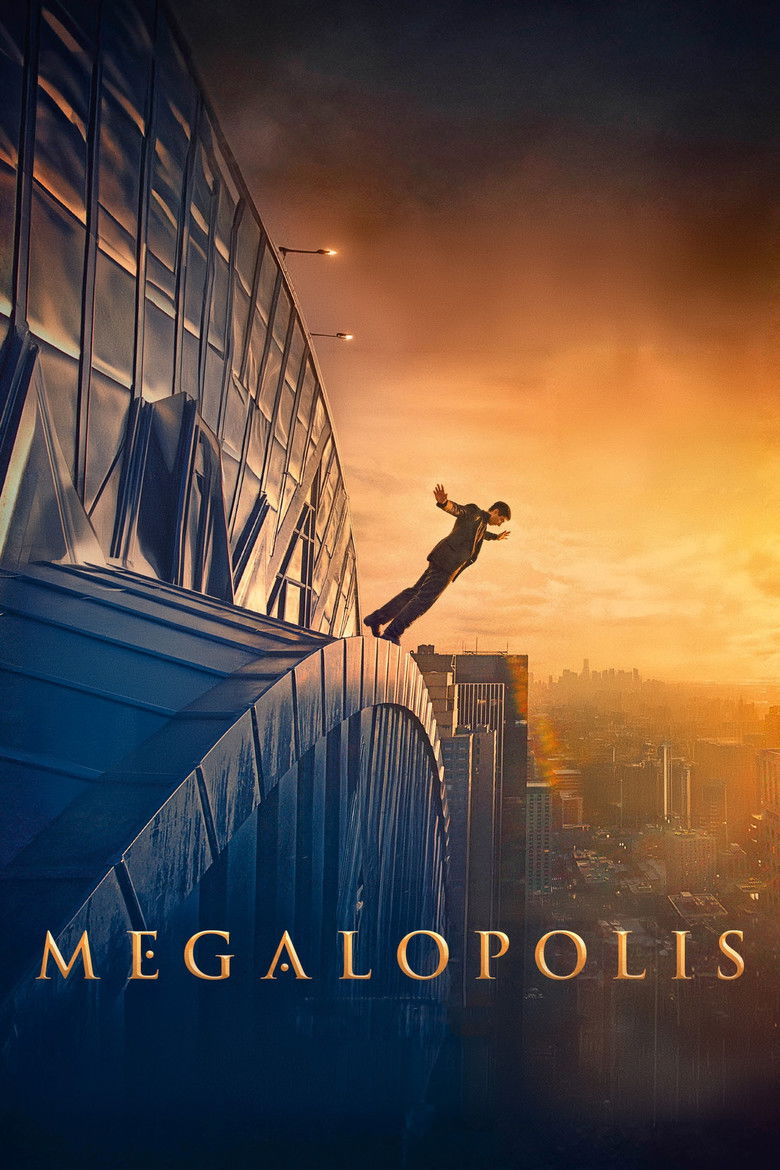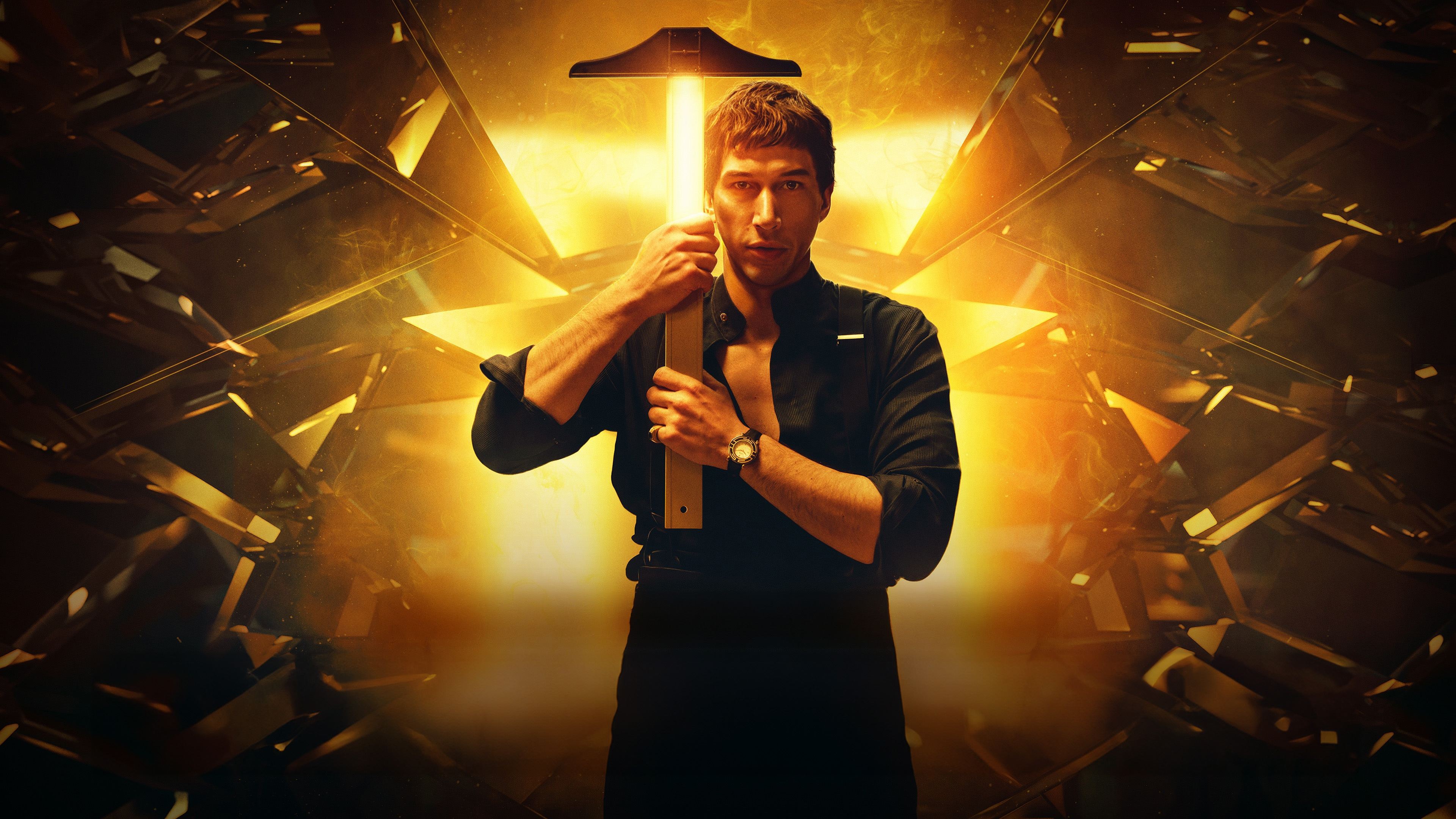
Megalopolis
Genius artist Cesar Catilina seeks to leap the City of New Rome into a utopian, idealistic future, while his opposition, Mayor Franklyn Cicero, remains committed to a regressive status quo, perpetuating greed, special interests, and partisan warfare. Torn between them is socialite Julia Cicero, the mayor’s daughter, whose love for Cesar has divided her loyalties, forcing her to discover what she truly believes humanity deserves.
Manuel São Bento@msbreviews
FULL SPOILER-FREE REVIEW @ https://fandomwire.com/megalopolis-review-admirable-ambition-meets-chaotic-execution-in-francis-ford-coppolas-epic/
"Megalopolis is an ambitious epic that attempts to examine numerous thought-provoking themes, but Coppola's vision of societal reconstruction reflects both its grandeur and the inherent flaws of its chaotic execution.
Despite immersive visuals and a talented cast, the narrative becomes overloaded with metaphors and philosophical analogies, resulting in an experience that, while provocative, feels confusing and scattered. The central conflict between Cesar and Cicero offers intriguing moments, but the richness of the ideas often gets diluted by the film's excessive complexity.
A frustrating disappointment that, even as the creation of one of the greatest filmmakers of all time, still falls prey to the common pitfalls of contemporary cinema."
Rating: C-
Brent Marchant@Brent_Marchant
In the interest of full disclosure, it pains me to write this, but I feel I must be honest. Legendary writer-director Francis Ford Coppola’s long-awaited epic cinematic fable is, regrettably, a major disappointment. After decades of stop-and-start development, the filmmaker’s metaphorical opus about a renowned, idealistic architect (Adam Driver) seeking to build an ambitious utopian development in a modern-day version of New York inspired by ancient Rome follows the protagonist’s often-frustrated efforts to get the project off the ground (not unlike the production of this movie itself). Thematically speaking, the picture addresses a number of thoughtful, significant issues about the roles of greed, corruption, politics and agenda-based motivations in matters of public welfare, as well as the importance of enabling the expression of inspired creative freedom. It also delves into the relevance of love and support in fueling the success of such ventures. However, these notions are severely undermined by an overwhelming abundance of narrative clutter and style over substance. While it’s true that “Megalopolis” is gorgeous to look at with its inventive and impressive cinematography and production design, these visual aspects become so dominant that they vastly overshadow the coherence and intelligibility of the story. Admittedly, a greater sense of clarity begins to emerge as the picture unfolds, but, unfortunately, by that point, it’s difficult to imagine almost anyone genuinely caring about what ultimately happens. There are also many less-than-subtle parallels between the plot of this film and the screen adaptation of author Ayn Rand’s best-selling novel “The Fountainhead” (1949), raising some questions about the authentic originality of this work. Given that this could well be Coppola’s final film, it’s a shame to see the director wind up his repertoire with such a disappointing and underwhelming effort, and some reviewers (myself included) have tried mightily to avoid being unduly unkind, perhaps delivering more generous ratings than might ordinarily be the case. Nevertheless, it would appear that this allegorical undertaking was more than the filmmaker could manage, and it shows in the finished product, quite a letdown from the director known for such classic offerings as “The Godfather” (1972) and “Apocalypse Now” (1979). Yet, if you’re determined to see it, in light of the stunning visuals, this is probably a production best viewed on the big screen, but don’t be surprised if you walk away from this one disappointed overall.

CinemaSerf@Geronimo1967
So imagine that the Roman Empire survived the turbulent treacheries of the original Caesars and made it to third millennium. (New) Rome has miraculously relocated to the United States (of course the greatest country the world has ever known) and the city is run by mayor "Cicero" (Giancarlo Esposito). He's not without his detractors, though, and one of them is the ambitious "Cesar" (Adam Driver) who has ambitions to reinvent their city, Nero-style, by demolishing the run down slums and replacing them with an idealistic utopia constructed of his new, eternally lasting, "Megalon". The city's vested interests are lined up against this young man though, all except the mayor's daughter "Julia" (Nathalie Emmanuel) who has taken a bit of a shine to the ambitious "Cesar" - and that's much to the chagrin of his previous squeeze "Wow" (Aubrey Plaza) who decides that she will seek some vengeance by marrying the enormously wealthy, and aged, "Crassus" (Jon Voight). Add to this already rather cluttered mix, the personality of "Clodio" (Shia LaBoeuf) who is determined to bring down "Cesar" and see himself in public office - and inherit the "Crassus" fortune, and we have the makings of an internecine intrigue that ought to have made Suetonius and Machiavelli blush. Instead, well, we get a rambling drama that hasn't a clue where it's going - nor for whom it is for. It tries to mix a bit of the ancient Shakespeare (and Marcus Aurelius) into the dialogue to lend some gravitas and sense of history to the plot, but for the most part this is just a confused mess of a film. It's a toss up between LaBeouf as the the over-the-top, hammy, "Clodius" and Voight's doddery old gazillionaire as to who takes what acting plaudits there might be here, but the rest of the cast look like fish out of (CGI) water and though the production makes the odd to nod to cinema history - there's a tiny bit of Fritz Lang here, I though - the rest of this comes across as an ill-inspired vanity project for Francis Ford Coppola that can't decide if it's "Romeo & Juliet" or "Spartacus" and in the end doesn't deliver the potency, emotion, intensity or humour of either. It is a good looking film and the production designers have imaginatively created a city-scape that is ripe for the story, it's just that the story isn't ripe for the audience. It does need to be seen on a big screen, but be prepared to be underwhelmed as it starts strongly then simply peters out into a wordy melodrama with a few clumsily delivered messages about the nature of greed and the fecklessness of humanity lightly woven into the weak storyline. Beware, it ends tentatively enough to scream sequel at us, too!
